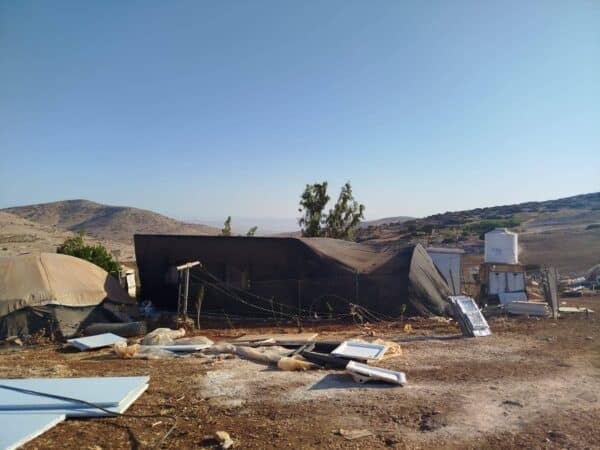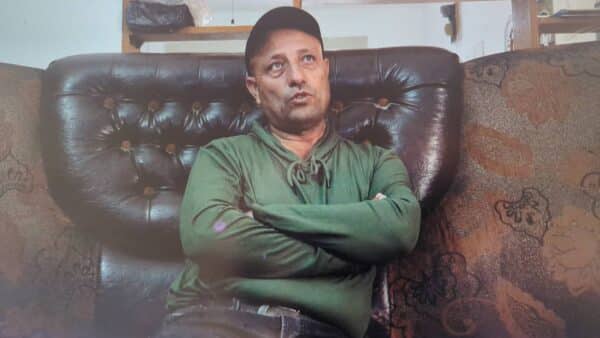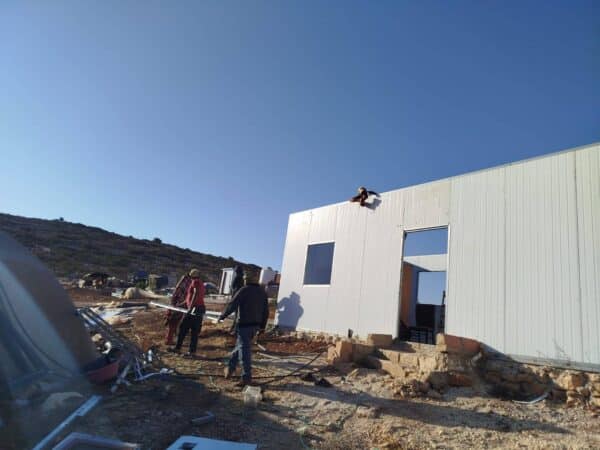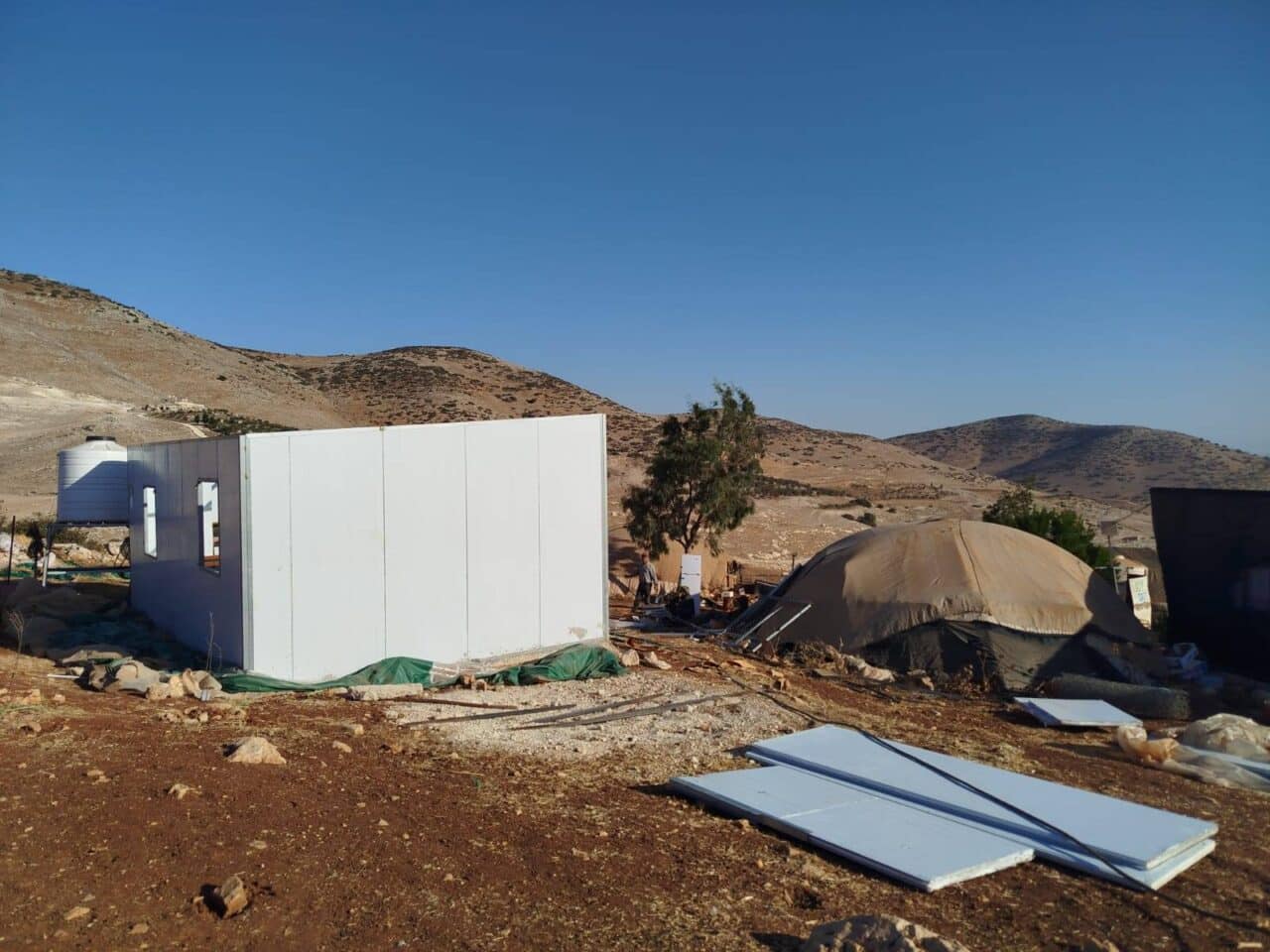The community of Ibziq was located in the north of the Jordan Valley, in the Tubas region, until the end of September 2025. A member of the last family living there mentioned “it is like paradise”. The area is full of pasture for the sheep to eat and with stunning vegetation that blooms beautifully in Spring time.
The high mountains of the valley surround the community creating a dreamy landscape. It is here where the last family out of 150 people have been resisting the abuse of the Zionist settlers who operate with the connivance of the army.
There are no more families in Ibziq now. They have all been displaced. The lack of resources to keep feeding their flocks, together with the constant attacks by settlers and army resulted in the physical, psychological and economical exahustion of a family that has been trying to defy the deplorable tactics used against them.
A staging post for violence
Since February 2025, multiple attacks and disruptions have been happening in the north west area of the Tubas Governorate, and the case of Ibziq is not an isolated episode. There is an intensive effort to push out the communities on the main road that connects the villages and communities in the Jordan Valley with Tubas. The whole area is experiencing a large number of attacks by settlers and military that feels like a coordinated expansion strategy. In February, there was a Palestinian resistance operation on the Tayasir checkpoint, located along this road, killing two Israeli soldiers. This resulted in the closing of the road for several weeks leaving communities and families stranded or having to take much longer and more expensive routes in order to travel outside the area.
At the same time, the settlers built an outpost close to the military checkpoint with the stated aim of providing “security”. The real purpose was to use it as a staging post for carrying out attacks on Yarza, Ibziq and Al Aqqaba. As we are writing these words, all the families in Ibziq have already left, and the ones in Al-Aqqaba are under great pressure and danger.
Since last March, settlers started to put pressure on the livelihoods, economy and resources of the people in the Tubas region. They shot and poisoned their animals and stopped them from taking their sheep to graze to certain areas. When that didn’t work, they started to intimidate, making the children and the women of the family afraid. At the beginning of August settlers built an outpost above the community of Ibziq. Colonists began harassing the community on a daily basis claiming it was illegal for the people of Ibziq to graze their sheep on the land.

The last family in the valley
We met Aziz in Tubas. He is one member of the family who held out the longest to protect their land. He told us how since March 2025, the settlers have killed 20 of their sheep and five cows, they confiscated their water tanks, the one used for feeding the animals. One morning of last June, Aziz woke up and discovered a great number of dead birds on his land close to where the sheep have their food and water. He told us: “We soon realised that the target weren’t the birds but the sheep, the water and the food were poisoned.”
The settlers carried out all these attacks by themselves, confident that they wouldn’t have any consequences for their actions as the army is on their side. Moreover, there are multiple examples of the family members being arrested when calling the police to report these incidents.
The family reported this to the Tubas Governorate and they opened a court case, but Aziz is still waiting to hear back from the Israeli courts.

The army participates in the ethnic cleansing
From June 15, the attacks started to be perpetrated by the soldiers too, harassing not only the families but also the international volunteers that were providing protective presence 24 hours a day, together with other young members of the family and other relatives. They received a threat to leave the house immediately, the soldier didn’t present any official papers so they started to argue that it is a military area and if they didn’t move the army would destroy their houses, kills their animals and forcibly move them.
The soldiers told Aziz: “This is the land of Israel, this is for us to train. I am worried about you, I am worried about you being hurt when we start training,” implying that something could happen to him. In the following days the army “attacked the family and hit the kids”, this happened to both of Aziz’s children.
A school under siege
The staff working in Ibziq school, situated beneath the outpost, are mainly women and they are scared for their students. “They have been noticing the fear that the children carry when having to go to study in Ibziq,” one staff member told us. They added that the army came and said: “This is the last day of school here, this school is now closed.”
An ISM volunteer that was providing the solidarity presence, Sascha, recalled: “On my second day with this family, settler security arrived in Ibziq and took IDs of many members of the family. They brought a family member on his knees to interrogate him and brutally grabbed him by his jaw and shook his head until some teeth were broken.” This person was Aziz’s nephew. That same day, the settler security informed the family that they had one hour to take down one of the family houses or they would put everyone in jail. The family decided to comply and international volunteers helped them dismantle the house. After a few minutes the settler called the army, who came back with all the IDs. They were told that they had to do that for the other three houses too, which took the whole day.
Even on the day that Aziz and his family were leaving, the settlers and military didn’t stop harassing and humiliating them. The army surrounded the house with soldiers while shouting at them that they have to take every tent with them.
By Valle Carvajal

Photo credit to ISM

